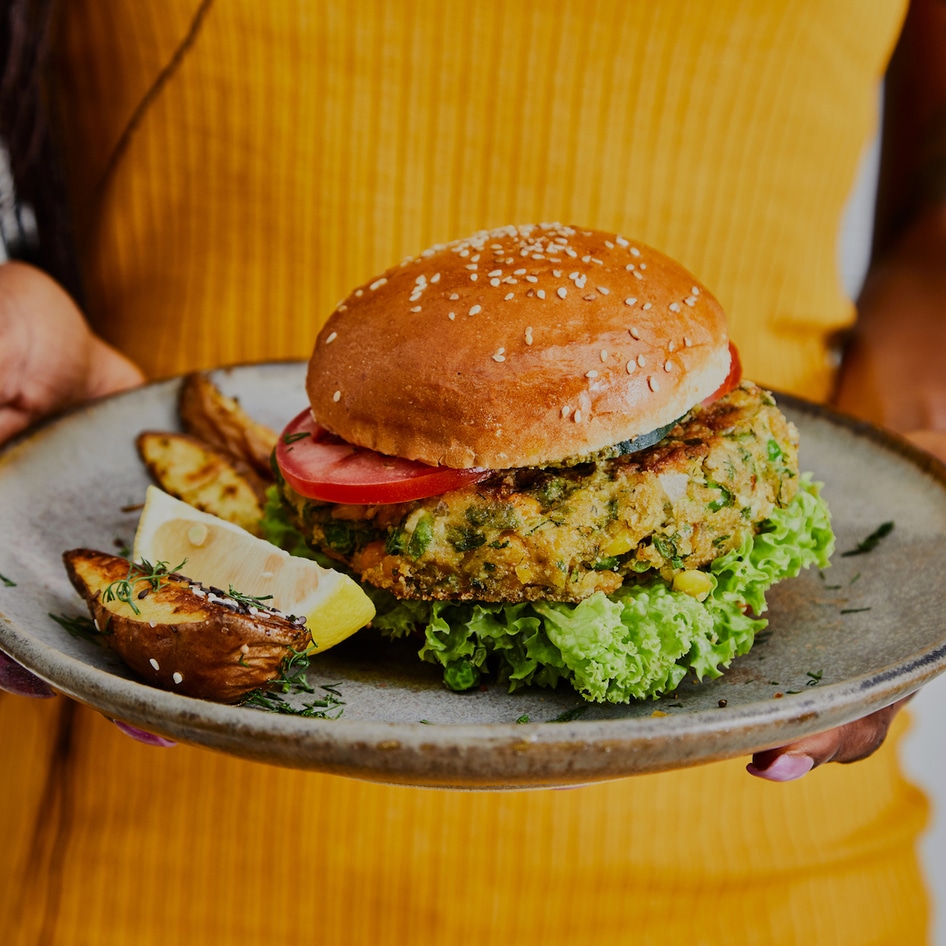According to the National Institutes of Health (NIH), more than 500,000 people in the US are living with Crohn’s disease. The chronic disease, which causes inflammation and irritation in the digestive tract, is a type of inflammatory bowel disease.
Its symptoms can be painful and debilitating, but research also suggests they can be managed with the right treatments and lifestyle changes. Quitting smoking, for example, may make a difference, and so can exercising regularly. Dietary changes may also help to improve symptoms. So can a vegan diet help? We spoke with experts to find out more.
What is Crohn’s disease?
“Crohn’s disease is a particular type of inflammatory bowel disease,” Kimberly Gomer MS, RD, LDN explains. “It is an autoimmune disorder that occurs as a result of your body’s immune system attacking its own cells.” The symptoms can be varied, but they include things like severe diarrhea, abdominal pain, fatigue, and fever.
Crohn’s can also cause anemia, she adds, as well as arthritis, skin rashes, and inflammation of the eye. “You may experience a few or many of these symptoms and they may be mild or severe,” Gomer says. “These symptoms may go into remission where you experience no symptoms at all.”
 Moyo Studio
Moyo Studio
According to Gomer, Crohn’s has a “complex nature and impact” on people’s daily lives. It “strikes at the core of an individual’s well-being, affecting not only physical health but also emotional and social aspects.”
According to the NIH, Crohn’s disease seems to be becoming more common in the US, but “experts do not know the reason for this increase.” It can occur in people of any age, but it is more likely to develop in people in their 20s, those who smoke, or those who have a family member with inflammatory bowel disease.
What treatments can help people with Crohn’s disease?
Treatments that may help move Crohn’s disease into remission for some people include quitting smoking, reducing stress, taking supplements, and taking medication.
“Managing Crohn’s disease often requires a multi-faceted approach,” Gomer explains. “Lifestyle modifications such as adopting a well-balanced diet, managing stress, getting regular exercise, and staying hydrated can all contribute to symptom management and overall well-being.” Gomer also states that diet changes may have an impact.
This is also the view of Emily Spurlock, RD. “I often have people trial a gluten-free, dairy-free diet to see if it relieves symptoms,” she explains. “Other foods to avoid vary greatly depending on each individual. Usually, people with Crohn’s know what foods they can and cannot tolerate.”
Can a plant-based diet help Crohn’s disease?
Research suggests that diet may play a role in the development of Crohn’s disease. In 2020, one Harvard study published in the journal Gastroenterology noted that eating a diet high in foods tied to inflammation may increase the risk of Crohn’s. It listed foods like processed meat, sweets, and refined grains, for example.
The study authors evaluated 30 years worth of self-reported diet information from more than 208,000 men and women to draw their conclusions. They found that those with the highest inflammatory diet scores had a 51 percent higher risk of developing Crohn’s disease.
“The study is observational and doesn’t prove that an inflammatory diet causes Crohn’s disease,” Harvard Health notes. “But with so many other risks associated with foods that promote inflammation, it’s important to eat as many foods that fight inflammation as possible.”
 Pexels
Pexels
BECOME A VEGNEWS VIP: Get exclusive product deals, freebies, and perks galore!
For those who already have Crohn’s, it’s important to note that a vegan diet is not a cure for the disease, but some dietitians believe it may help manage symptoms. This is because plant-based, whole foods may be able to help tackle inflammation.
“The research shows that Crohn’s can be brought into remission through a whole food, plant-based diet,” says Gomer, who recommends foods like leafy greens, vegetables, mushrooms, fruits, legumes, seeds, plant-based dairy products, and nuts.
“Understanding that Crohn’s disease is an inflammatory condition makes it logical to try an anti-inflammatory diet for relief,” she adds. “I have helped many clients get relief and a much-improved quality of life—increased energy and vitality through adopting a whole food, plant-based diet.”
 Pexels
Pexels
Spurlock adds that including more fiber in meals may help to reduce symptoms for some people with Crohn’s disease, as there is some research to indicate it creates a beneficial gut microbiome. But she also stresses that going vegan is not a universal fix for this condition. “Some people seem particularly sensitive to the insoluble fiber found in fruits and vegetables,” she notes, before recommending that sufferers try a plant-based diet for one month to see if it makes a difference for them.
If you’re interested in trying out a whole food plant-based diet, you can follow our guide to the lifestyle, which is also associated with a lower risk of heart disease and certain types of cancer. You can also find a multitude of different healthy (and tasty!) plant-based recipes in our recipe library.
For more plant-based stories like this, read:
JUMP TO ... Latest News | Recipes | Guides | Health | Subscribe









